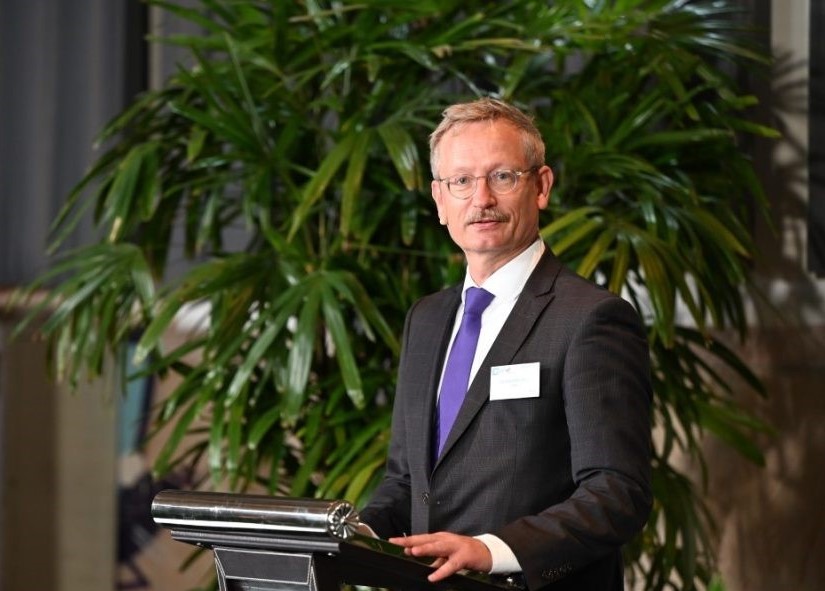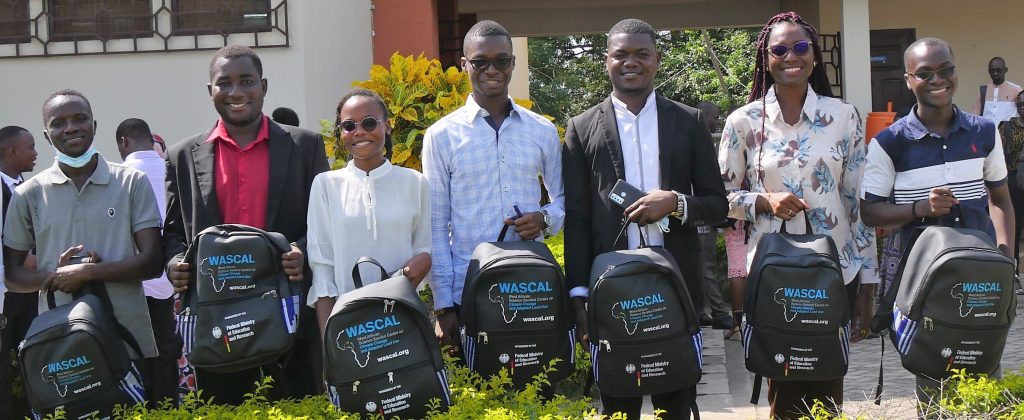
Dr. Karsten Hess, Head of Division, Global Climate Change in Research and Biodiversity at the German Federal Ministry of Education and Research (BMBF), major funder of WASCAL has stated that investments into science and education are key to sustainable development, and that BMBF was investing cautiously in the capacity development of WASCAL students specially to increase their chances on the job market as well as contributing towards the mitigation and adaptation of Climate Change.
Dr. Hess was speaking at the official kick-off of the fifth batch of WASCAL Graduate Studies Programme in Climate Change where 110 doctoral students and 22 master’s students, totaling 132 students received full scholarships to pursue PhD and master’s programmes in Climate Changes across 12 universities in 11 countries within the sub-region. They will have the opportunity to visit Germany as part of their academic research.
The hybrid event took place online and live at the University of Cape Coast, Ghana, where francophone students are provided with English proficiency programme to enable them have a successful programme. It is worth noting that, anglophone students are also sent to the University of Lomé, Togo for French proficiency programme.
Dr. Hess called on the students to realize the challenges of Climate Change as one of the most pressing issues currently, especially for politics, science, and practice in Africa in particular, and the world at large. He called on the students to take collective action to make the difference.
“We know that we have to make a difference today so that next generations will have a sustainable future in the world of tomorrow. For us this means we have to take actions, everyone with each individual skills and opportunities.” He stressed.
He further engaged the students to push their skills higher towards a successful programme and asked them to seize the opportunity to enhance their skills to prepare them for the greater tasks ahead.
“Today, you are about to open a new chapter of your life’s story. Well, equipped with the skills and knowledge you will attain in this WASCAL Graduate Schools, you will be able to move on in this story, whatever your next steps might be. For some, it will be further studies to earn a PhD; others might be heading straight into the workforce. Whatever direction you take, I guarantee that your world will change if you take seriously the courses, prepare your research work on time and use your scientific visit in Germany to gain even more skills.
He finally welcomed the students and extended a gratitude message to the WASCAL for their dedication.
“I would like to welcome you, our new students again to be part of that WASCAL family and to become a well-trained representative in the field of climate science. I would also like to thank our WASCAL members for your excellent work and commitment and for the overall excellent collaboration within these international research teams and scientific communities.
The WASCAL Graduate Studies Programme supports and facilitates academic education amongst West African universities in association with German counterpart institutions. The activities focus on the training of doctoral and master’s students. Each of the ten doctoral programmes and two master’s programmes is autonomous and based at one lead university selected in a consultative process among the candidates’ countries.
The programmes pool the scientific and educational strength of faculties in the West African region and thereby facilitate high quality research and education. A significant part of the WASCAL effort is the strengthening of this trans-national communication and capacity building.


